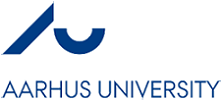Computer Engineering

Winter intake start date
2026-02-01
Winter intake deadline
2024-10-15
Introduction
Aarhus University’s Master of Science in Computer Engineering is designed for students who wish to deepen their knowledge, competencies and skills in the design, development, and integration of computer hardware and software systems. The two- year Master’s programme equips the student with advanced theoretical and practical aspects, emphasizing both the foundational principles and the latest technological developments and application in the field.
You can dive into a wide array of fields, such as digital twins, cyber physical systems, embedded systems, computer vision, artificial intelligence, next-gen wireless networks, distributed systems, and robotics, which are the core fields for digitalisation of modern society.
Job and career opportunities with a MSc in Computer Engineering are immense.
Flexible study programme
The MSc programme consists of 20 ECTS mandatory courses, 40 ECTS specialisation courses, 30 ECTS elective courses for which there is the possibility to select courses from different departments, and a final thesis project of 30 ECTS.
The 40 ECTS of specialisation courses gives you a unique opportunity to shape your programme according to your areas of interest. Starting from the summer of 2025, you can choose from the following specialisations:
- AI & Computer vision
- Biomedical engineering
- Chip design
- Communications and Networks
- Cyber-Physical Systems
- Cybersecurity (2026)
- Electronics & Photonics
- Renewable Energy Systems
- Robotics and Drone Technology
- Software engineering
The teaching is usually divided into lectures and theoretical and practical exercises in small classes and small groups. Students are expected to have the ability to complete course projects on their own as well as collaborate with their peers on group assignments.
Flat structure
At Aarhus University, the educational environment fosters close and informal interactions between students and faculty. The social structure is uniquely flat, questions are always welcome, interaction and discussions are highly encouraged, and you can always catch up a chat with any one from our academic staff.
Interdisciplinarity and social life
Aarhus University is a comprehensive university encompassing a broad spectrum of fields, from engineering and natural sciences to the arts, health, and business, creating a vibrant community where students can engage with peers across diverse academic disciplines.
The university is centered in the city of Aarhus and houses 40.000 students. Practically everyone speaks and understands English, making it easy for you to settle and get around. The university has more than 40 campus Friday bars open to everyone and has a strong focus on social life and work-life balance.
Career prospects
Digitalisation is ‘the big change’ and digital technologies are penetrating every sector. Computer Engineering graduates have a plethora of career opportunities across various sectors, including but not limited to software development, ICT systems and services, as well as consultancy roles.
Most of the graduates establish successful careers as software architects, developers, IT consultants, or project managers across various ICT systems.
Additionally, there's the option to pursue an academic or research career, particularly with further studies towards a PhD, or to embark on entrepreneurial endeavors within the technology sector.
To summarise, MSc. graduates of Computer Engineering in Denmark experience a notably low rate of unemployment.
Na studia magisterskie mogą kandydować wszyscy, którzy ukończyli studia licencjackie lub inżynierskie (studia I stopnia), studia magisterskie lub studiują na ostatnim roku studiów I-stopnia. Studia, które planujesz powinny mieć zbliżony profil do tych obecnych lub ukończonych, ponieważ w procesie rekrutacji kluczowa jest ich zgodność programowa.
Wykaz punktów ECTS – osoby, które są jeszcze w trakcie studiów, muszą załączyć wypis punktów ECTS, w którym będzie wykazane, jakie przedmioty były realizowane na studiach oraz ile punktów za nie otrzymano.
Dyplom ukończenia studiów licencjackich lub inżynierskich – jeśli jesteś absolwentem wyższej uczelni, nie potrzebujesz wypisu, wystarczy załączyć dyplom ukończenia studiów wraz z suplementem (w języku angielskim lub oryginał z tłumaczeniem)
Course description - należy przygotować dokument, zbierający cały sylabus ze studiów licencjackich. Takie sylabusy najczęściej są do pobrania na stronie uniwersytetu. Należy je przetłumaczyć na język angielski (można samodzielnie) i złączyć w jeden dokument. Warto też zapytać w dziekanacie uczelni, czy nie dysponują wersją angielską.
Oficjalna skala oceniania Twojej uczelni - możesz dostać taki dokument w dziekanacie Twojej uczelni lub skonstruować samodzielnie. W obu przypadkach dokument powinien zawierać pieczątkę dziekanatu.
Spełnienie wymagań w zakresie języka angielskiego można udokumentować w jeden z następujących sposobów:
IELTS – 6.5
TOEFL – 83 (Aarhus University TOEFL kod - 8935)
Uwaga: wymagania językowe mogą ulec zmianie. Przed wysłaniem aplikacji upewnij się jakie są wymagania językowe na konkretny kierunek bezpośrednio na stronie uczelni.
W przypadku zdawania certyfikatu IELTs upewnij się, czy uczelnia oprócz wymagań oceny końcowej nie ma również wymagań odnośnie ocen cząstkowych.
| You can meet the admission requirement with Bachelor’s degree programme (BSc) or professional Bachelor's degree programme (BEng) if you have the following subject areas: | Number of ECTS |
Bachelor courses in Mathematics In the following subject areas:
| 20 |
Computer technology Topics within the field of Computer technology are for example; programming and modelling, algorithms and data structures and computer architecture. | 30 |
Additionally, bachelor courses in within at least one of the following topics:
| 10 |
| Total | 60 |
